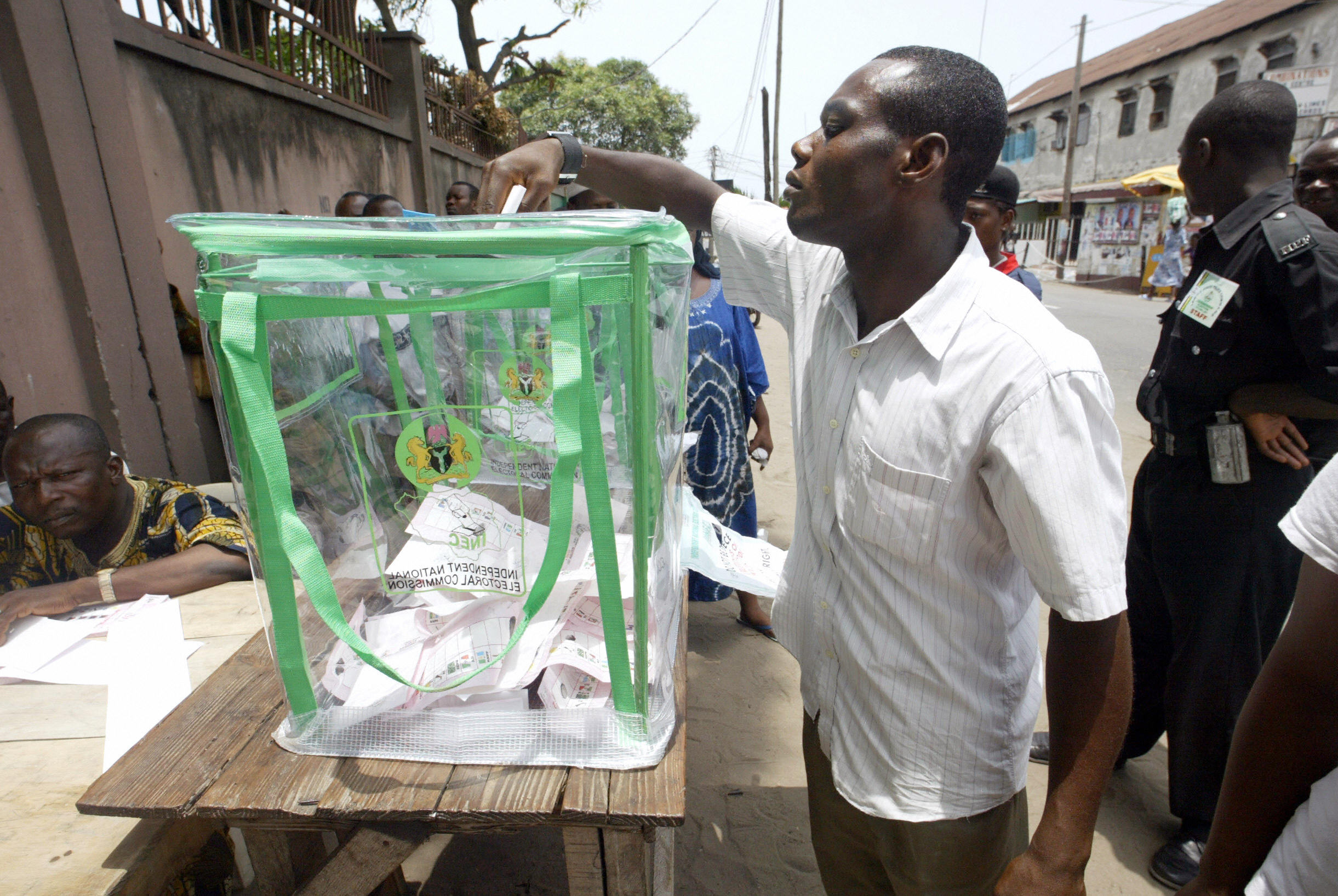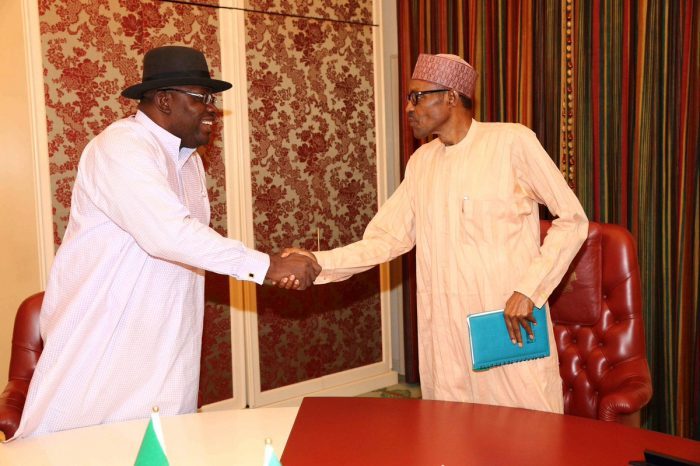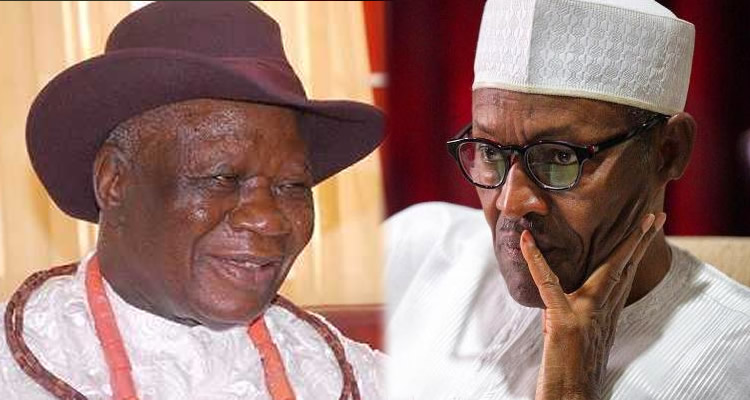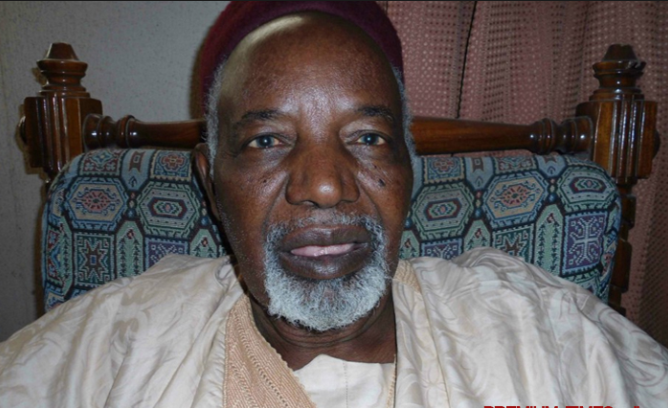The Governor Nasir El-Rufai led committee on restructuring on Thursday presented its report to the National Chairman of the party, John Odigie-Oyegun with some recommendations aimed at making the states and local governments more independent.
Some of the key recommendations are resource control, making local government an affair of states, constitutional amendment to allow merger of states, state police, state court of appeal and independent candidacy.
The committee was set up in August 2017 to formulate the position of the party on restructuring which was clamoured for by most influential Nigerians.
The committee initially had 10 members but this was later expanded to 23 members.
According to its mandate, the committee was to distill the true intent and definition of true federalism as promised by the party during the last electioneering campaign, and to take a studied look on the report of the various national conferences, especially that of 2014; and come up with recommendations.
Submitting the report at the party’s secretariat, Mr. El-Rufai said 8,014 people were engaged in the process of their research and that Nigerians indicated interest in 24 issues.
Out of these 24 items, the committee made recommendation on 13 in its report, which has four volumes.
“After four months of rigorous research, we are pleased to inform the chairman we have completed our assignment and are here to present our report. Our report is in four volumes,” the committee chairman said.
“The report is in four volumes with Volume One containing background information of the research and recommendations; Volume Two, Action plans from the research to implement its resolution and draft of bills; Volume 3, Media reports and the result of the online survey of the issue; and Volume Four, the appendix- summary of all memoranda received.
“I’ll like to highlight some principal recommendation by the committee. We articulated 14 issues re-occuring in previous conferences.
“At the end of our rigorous research, debates and deliberations, we came up with 24 items that Nigerians have indicated interest views that balance our federation.
“These items are; creation of states, merger of states, delegation principle, fiscal federalism, devolution of power and resources between state, federal and local governments, federating units, form of government, independent candidacy, land tenure system, local government autonomy ,power sharing and rotation, resource control, types of legislature, demand for affirmation for vulnerable groups;people with disabilities, women and youth, ministerial appointment, citizenship, state constitution, community participation, minimum wage, governance, judiciary, state re-alignment and border adjustment, circular status of the federation; and referendum.
“We articulated only 13 issues from the various opinions expressed by Nigerians in our engagement, identified these 24 issues for which the committee deliberated and has made recommendations in the report.
“We went ahead to look at these recommendations to convert them into concrete actions that the party, government and the national assembly can take to re-balance our federation.
These items are:
Merger of states
“The first item that we thought needed legislative action is merger of states because creation of states is already in the Constitution; so there is a procedure, so there was no action needed.
“However, it is appropriate to point out, Mr. Chairman, that only 36 percent of Nigerians want more states created. so majority of Nigerians don’t want creation of states.”
“So, the first recommendation for which we have proposed a draft bill for constitution amendment is the merger of states. Though there was no consensus from stakeholders on the merger of states, we felt that we should propose a bill that allows state to merge and it is up to the party, the National Assembly and the people of Nigeria to decide on that. But we drafted a bill that is there for the party and the government to move on with.
Delegation principle
“The second that we have considered is the delegation principle. Here, it is recommended that the Revenue Mobilisation, Allocation and Fiscal Commission Act be amended to vest the commission with the power and responsibility to periodically review the delegation formula and make proposal to the President who shall then table the said before the National Assembly for legislation.
“We have therefore drafted a bill that will expand section six sub section one of the Revenue Mobilisation, Allocation and Fiscal Commission act to give them that power. The bill is in Volume 2 of our report.
Fiscal federalism
“We also have recommendation on fiscal federalism and revenue allocation in which we propose amending section 162 and sub-section two of the Constitution; as well as amend the revenue allocation of revenue Federation Account Act to give more revenue to the states and reduce the federal government’s share of revenue.
“This again is what we got as feedback from majority of Nigerians that the state should get more revenue and the federal government should slim down a little.
Devolution of power
“This recommendation, has to do with the devolution of powers. There was overwhelming popular demand for the devolution of power to the states by the federal government, and the committee recommends the same.
“Accordingly, we have proposed that the Second Schedule of Part One and Part Two of the Constitution should be amended to transfer some items that are now on the Exclusive List to the Concurrent List that will enable both then states and the federal government to legislate on them.
“Under devolution of power, there are items that were recommended to be moved from the Exclusive List to the Concurrent.
Here are the items:
” 10 items have been identified for the movement from the Executive List to the Concurrent List.
– Food and Drugs
“Food, drugs, poison, narcotics and psychotropic substances. We are proposing an amendment to the Constitution for the president to keep narcotics and psychotropic should be left on the Exclusive List while food drug and poison should be moved to Concurrent List so that state can legislate on these items in addition to the federal government. At the moment only the federal government can legislate on them.
– Fingerprint identification of criminals
“The second item is finger print and identification of criminal records. This is currently on the Exclusive List. The committee for feedback received from Nigerians recommendations that they should be moved to the Concurrent List.”
-Registration of business names
“The third item is registration of business names. Registration of business names for firms that want to operate throughout Nigeria should be done at the federal level. For small businesses that wan to work exclusively within the state, they should be registerable at the level of the state. we recommend that that should be moved to the Concurrent List as well.”
-Labour matters
“We have also recommended that labour matters should be moved to the Concurrent List such that the federal government and the sate can legislate on these matters. Labour, including trade unions, industrial relations, safety and well-being of labour, industrial disputes and prescribing minimal wage and industrial arbitration should be in the state. Meaning every state can determine its minimum wage.”
– Mines and minerals.
“The fifth item is mines and minerals, including oil fields, oil mining, geological and natural gas. This should be moved to the Concurrent List. However, all offshore oil shall remain absolutely vested in the government of the federation.
“I think it is time to take these bold steps and move away from over-centralisation.
-The police.
“Item six, police. We have also moved to the Concurrent List. We are recommending that police should be both federal and state.”
-Prisons.
“We have also recommended that prisons should be moved from the Exclusive List to the Concurrent List, where we can have federal prisons and state prisons. This will make more prisons available and reduce the burden of the federal government.”
-Public holiday
” Item eight is public holiday. We want public holiday to be moved from the Exclusive List to the Concurrent List so that there will be federal public holidays and state public holidays. This is already happening unconstitutionally. This will just make the action of state governments lawful and legal and avoid confrontation from the federal government.
-Stamp duties
“Finally, we are recommending that stamp duties, legislation on stamp duties should be moved to the Concurrent List. The state will only legislate on stamp duties only for transactions involving individual s and business needs but not limited liabilities that are incorporated in the government of the federation.
“We believe that if these amenddment are passed by the National Assembly, they will significantly re- balance our federation, devolve more powers to the states, reduce the burden of the federal government and make our country work better.
“We have taken into consideration reports of all constitutional conferences and put this before Nigerians in 2017 and this is the feedback that we got, and we drafted the bill that will enable that to be passed by the National Assembly and the state Houses of Assembly.”
Independent candidacy
“The next recommendation is on independent candidacy. The committee knows that majority of respondents are opposed, surprisingly to independent candidacy. However, the committee still recommends that the party should support the demand for widening the political space by allowing for independent candidates. We believe that this will make the political party more honest.
“We have included in the bill that no one that wants to run as an independent candidate should be a member of any political party six months to the election. We have put enough safeguards in our recommendation to ensure that independent candidacy is not a platform for opportunism.
“We have put four safeguards. One; anybody that wants to stand for elective positions as an independent candidate, should not be a registered member of any political party at least six months before the date set for the election for which he intends to contest.
“Number two, his nominators will not be members of any registered political party. Three; independent candidate must pay an amount to INEC in the same range as the non refundable fees payable by candidates sponsored by political parties to their parties. So instead of paying to the parties, you now pay to INEC.
“Finally, the candidate must also meet all qualification requirements by the Constitution or any other, which is better than the independent candidate amendment.
Local government
“The next recommendation has to do with local government autonomy.
There are divergent opinions on this. We recommend that the current system of local government administration as provided by the Constitution to be amended and the state be allowed to enact laws to local government that is peculiar to each of them.
“We propose amendments to sections 7,8,162 of the First Schedule and Fourth Schedule of the Constitution to give effect to our recommendation.”
“We are by this recognising the federal government which can only be two tiers of government. Having three tiers of government is an arbitration, there is nowhere in the world where our research has shown us there are three tiers of government.”
Revenue allocation
“We have also proposed amending Section One of the Allocation of Revenue Federation Act to reflect this reality. We have also proposed amendment to section 40 to the Value Added Tax Act. They are in Volume Two.
“There is the question of what people call resource control. The committee noted the growing agitation by states to exercise control over natural resources within their respective territories and pay taxes and royalties to the federal government. If this recommendation is taken, then there will consequential amendment.
Citizenship.
“The issue of citizenship has been addressed by our report.’
Ministerial appointment.
“Arising from this is the issues of ministerial appointment. The president should have the freedom to nominate ministers from any part of the country, subject to confirmation by the Senate.
Judiciary
“There are also recommendations on the judiciary. the National Judicial Council as the single judicial in Nigeria is operating a unitary judicial system in a federal system. So we have proposed amendment to the Constitution to create a state judicial council that will appoint an discipline judges in a state while the National Judicial Council will exercise control over the appointments, discipline of judges of the federal government only. By that, we have proposed the creation of a state court of appeal.”
State re-alignment and boundary adjustment
“We have proposed constitutional amendments on state re-alignment and boundary adjustment to section A sub-section 2 and A sub-section a 4 if required .”
Referendum
“We have a constitutional amendment to enable a referendum to be undertaken on national issues. Right now, our constitution has no provision for referendum except in the creation of states.”
The chairman of the committee concluded by thanking the APC Chairman for properly choosing the member of the committee and also appreciating the members of the committee responsible for the recommendation.
Mr. Oyegun who received the report, praised the committee for a job well done and promised that the report would be considered and a decision made before the middle of February.
“Today, we have a report produced by some of the most intelligent, young Nigerians dealing with the most fundamental challenges.
“The concept is accepted, the need for it is accepted but what exactly do we mean. are we talking on a federation based on eight zones, six zones or what?.
“From the presentation of the chairman of this committee, everyone now has an idea of what the APC stands for when you say true federalism.”
“It is still going to go through the mill but what I will promise you, Mr. Chairman and members of the committee, for you hard work that you have put in for four to five months, is that this report is going to get expeditious consideration by the party.”
“I am going to promise that before the middle of February, it would have been considered and decided upon by the various structures of the party.
“The NEC and the Caucus of the party and whatever is there after will be presented to the authorities as the considered view and decision of the APC for appropriate implementation.”



